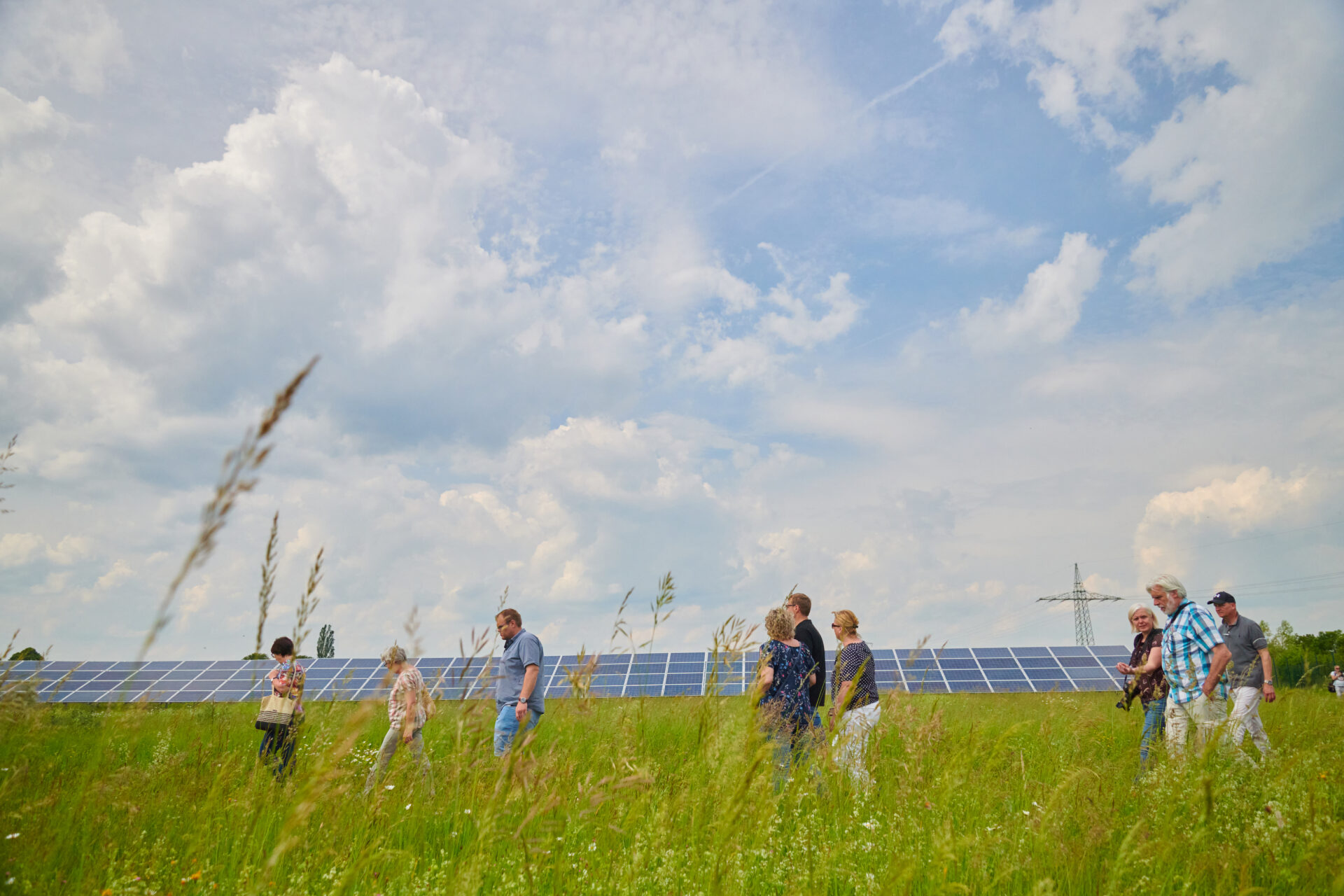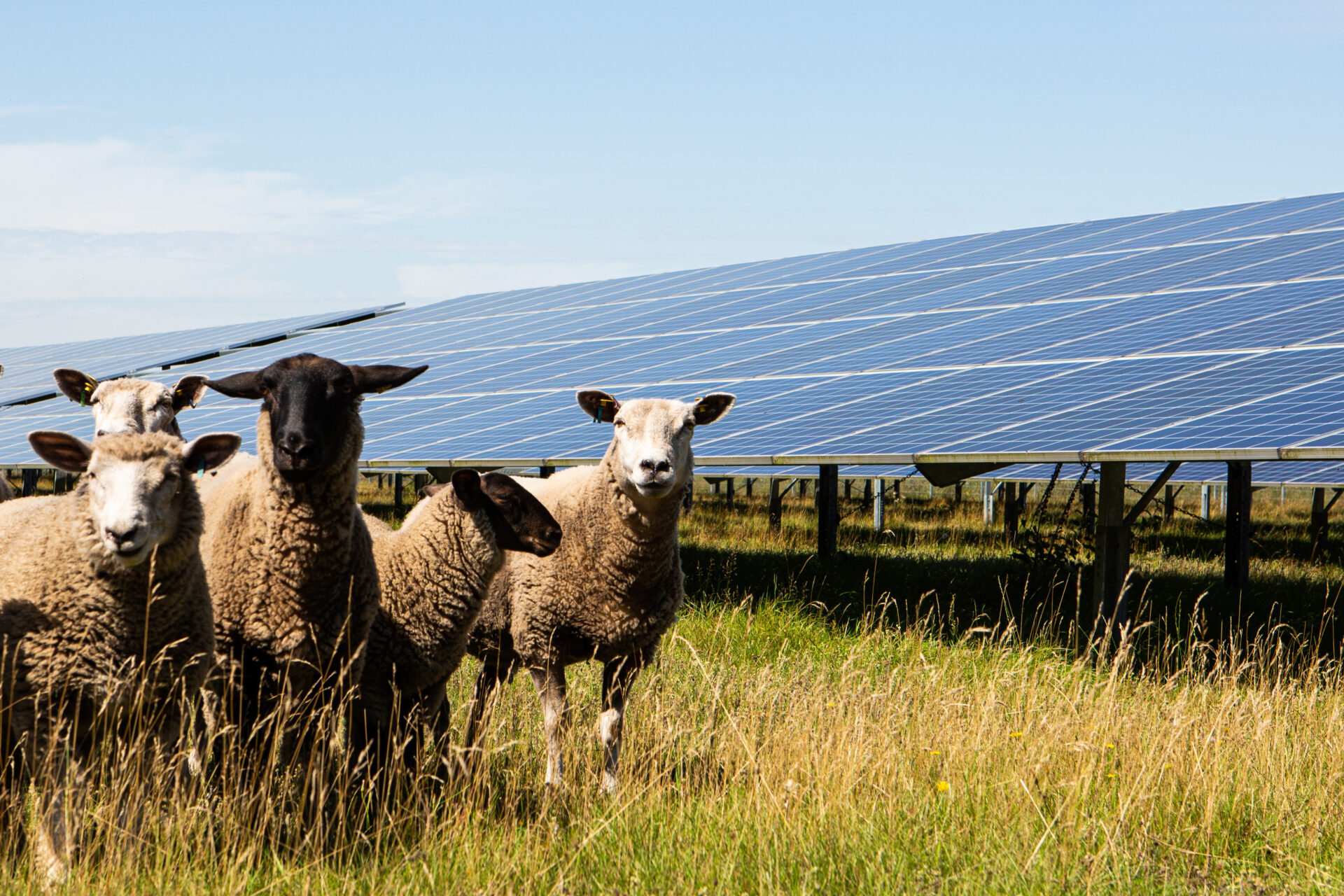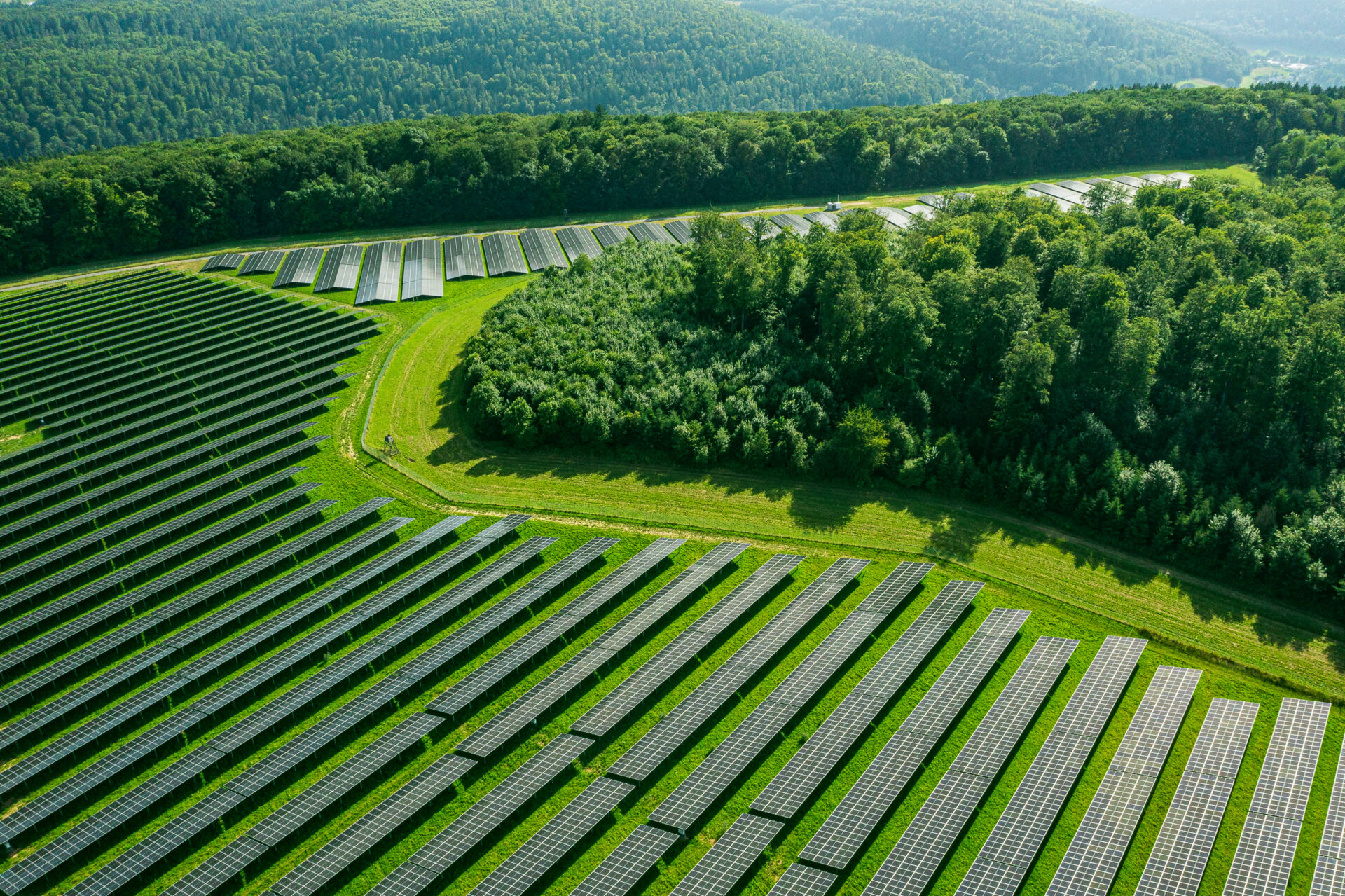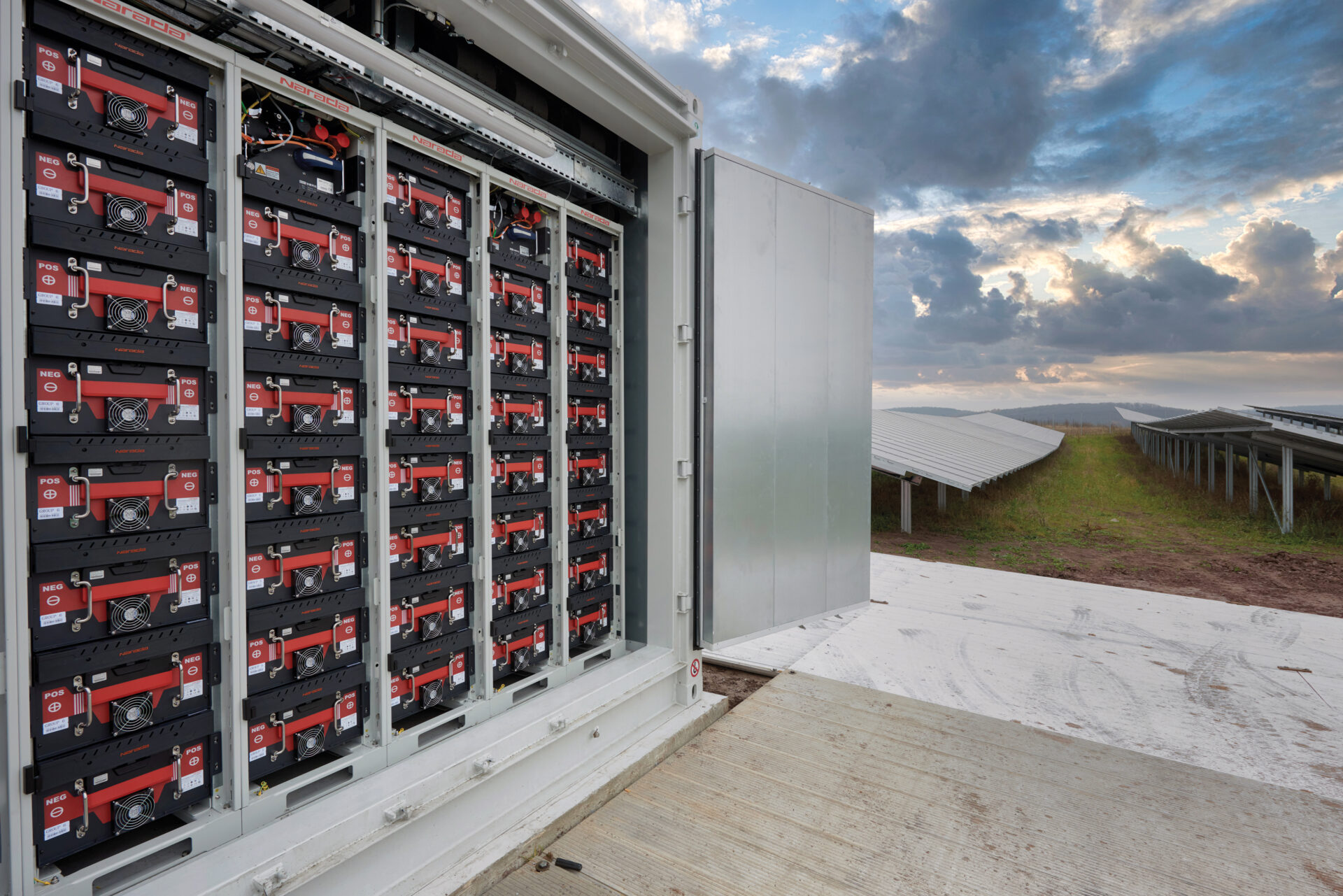The German Association of the New Energy Economy (bne) is presenting a new report on the regulations in the Renewable Energy Sources Act (EEG) with regard to municipal participation. The participation of municipalities and citizens in renewable energy projects is a decisive factor for acceptance and successful expansion. Since the introduction of Section 6 EEG, the regulation for the financial participation of municipalities, the EEG has been amended several times and participation laws have been added in the federal states. Modern solar parks with battery storage are also being planned. There are therefore good reasons for updating the EEG regulation.
Overview of the need for adjustment in Section 6 EEG and Section 22b EEG.
- Extension to all ground-mounted systems (Solar systems of the first segment)
- Expansion to solar battery power plants (Solar parks with battery storage)
- Conversion to "actually produced" electricity volumes (due to storage and redispatch)
- Introduction of a deadline for reimbursement (recommendation: eight weeks)
- Enable early clarity about participation (necessary due to state laws)
- Clear relationship between EEG and state laws and benchmarking (Adaptation of § 22b EEG)
The German Association of the New Energy Economy (bne) is submitting a Expert opinion which identifies existing weaknesses in municipal participation in solar parks and formulates concrete proposals for improving the resilience of the participation rules, with a particular focus on the integration of battery storage and the participation rules of the federal states.
Need to revise the financial participation of municipalities in solar parks
The participation of municipalities and citizens in the revenues from ground-mounted PV systems is a decisive factor for the acceptance and successful expansion of renewable energies. § 6 EEG regulates the financial participation of local authorities and has established itself as a successful instrument for promoting acceptance in recent years. It is now important to use this instrument for Modern solar parks with storage systems further development, to improve conceptual freedom with regard to participation and to better harmonise the EEG regulations with the Obligations to participate under state law harmonisation. While the EEG is developing dynamically, the state laws often lag behind.
Compatibility of the participation rule also for solar parks with battery storage systems
In practice, there are always uncertainties and legal challenges that make it difficult for citizens and local authorities to participate fairly in the expansion of solar energy. The weak points of the current regulation should be corrected (e.g. scope of application, quantities of electricity eligible for participation, reimbursement periods, etc.). The Compatibility of the participation rule also for solar parks with battery storage systems can be fully realised. As a result of the additional solar peak law Accrual option according to § Section 19 (3b) EEG the Green/grey mixed operation of battery storage systems in the market premium model, both for new systems and existing systems. The BNetzA has published the associated Determination procedure (MiSpeL) already opened. This stipulation will lead to solar battery power plants becoming the standard. The regulation on municipal participation in the EEG must reflect this positive development and Enable participation for produced and temporarily stored electricity. The storage systems in the solar parks can even "save" the municipal participation by storing the electricity that would otherwise be curtailed and feeding it into the grid later.
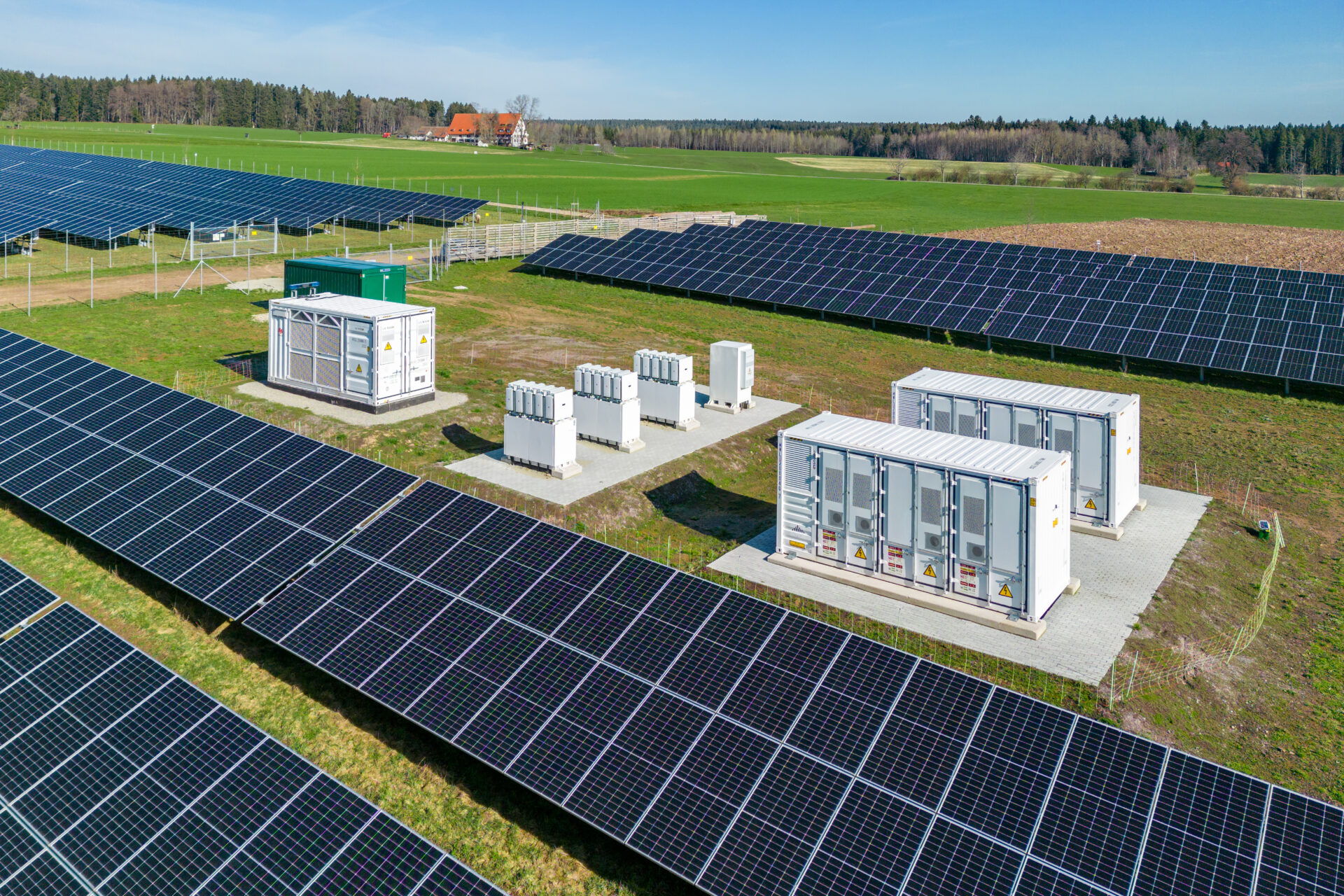
Resilient relationship between EEG and state laws in terms of municipal participation
The relationship between a dynamically evolving EEG and comparatively rigid state laws on participation will foreseeably become a problem. Even today, the different structures of the individual state laws are complex in practice. The participation laws of the federal states distort competition and in some cases significantly influence the economic viability of solar parks between the federal states. With every future change in the regulatory framework (e.g. grid fees, BKZ, etc.) or in the EEG (e.g. claw-back mechanism) that influences the economic viability of solar parks, this structure shifts. However, the state laws are not adapted in the short term, which is detrimental to planning security. The bne therefore recommends the cumulative application of both regulations with Priority of the EEG regulation. Plant operators must be protected from disproportionate, non-refundable mandatory payments that jeopardise project realisation. There should therefore be a Adequacy rule in the EEG which the system operator can Various forms of participation The participation may be offered at up to 0.4 cents per kilowatt hour of electricity generated, but must not exceed 0.3 cents per kilowatt hour. It should also be possible to partially exempt oneself from the obligation to participate by offering up to 0.2 cents per kilowatt hour by way of financial participation in accordance with Section 6 EEG.
Early legal certainty for participation programmes and conceptual freedom
The various state laws on participation change the requirements for the EEG regulation with regard to the Legally compliant communication with the municipalities. The stumbling block is the timing of the submission of the participation offer. According to Section 6 of the EEG, agreements are prohibited before the development plan is adopted. Particularly in view of the state laws, some of which already provide for mandatory payment, the regulation proves to be unsuitable and unnecessary. The bne proposes that the to cancel the time restriction and instead clarify in the EEG that agreements may not have any influence on the legality of administrative action. This protects the planning sovereignty of the municipalities and creates legal certainty in practice.
The German Association of the New Energy Economy (bne) identifies existing weaknesses in municipal participation in solar parks and formulates concrete proposals for improving the resilience of the participation rules. To this end, a Expert legal opinion to analyse and improve the municipal participation regulation for ground-mounted PV systems and ground-mounted PV systems with battery storage systems was prepared by the law firm von Bredow Valentin Herz in summer 2025. The Expert opinion you will find hereas well as an associated Position paper.
More information on the topic of large-scale battery storage
You can find more information on the topic of security of supply in combination with large-scale battery storage systems in our fact sheet.

